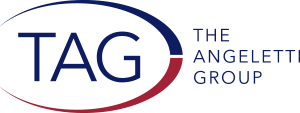Making the Ask: A Guide for Volunteers
“Making the ask” is at the heart of good fundraising techniques. Simply put, the most common reason why people give is because they were asked. And, while the ask plays an integral role in all requests and across all channels, it is most significant in peer-to-peer personal solicitations for major gifts.
Few volunteers “live” the organization’s mission daily as the staff does, and it’s crucial that volunteers fully grasp the organization’s distinctive characteristics and major challenges. Only then can the volunteer link the prospect’s personal and charitable goals to the most relevant needs of the organization.
Ideally, volunteers are passionate about the organization, confident enough to make significant asks, have a network, and most importantly, have made a personal commitment. Here are 12 tips for volunteers to be effective askers:
- Understand the organization’s case statement. As a volunteer, it’s important to be well-steeped in why the organization exists and how philanthropy supports its goals. “Refresher” sessions about messaging and developing an “elevator” speech should be offered for board members and key volunteers annually.
- Distill the essence of the case into a personal elevator speech. Though each volunteer will tailor discussions with prospects based on his or her interests, the main elements will remain constant.
- Before making your first call to set up a meeting, ensure you have made your own gift.
- Consult with the organization’s development staff to learn more about each potential donor. There is presumably high-value data on the individual’s finances and charitable history. Ideally, you can also learn nuances of this individual’s relationship with the organization, motivations, and particular interests. If you don’t know the person well, you can contact mutual friends for guidance as well.
- Your development contact can also help you determine your specific goals, especially the dollar amount and campaign or program to which the gift could be applied, if any.
- Personally call the prospect to set up your meeting. It will help you start establishing rapport through your shared interests and friends or acquaintances.
- If possible, meet at the prospective donor’s office or home versus a restaurant. And, plan to arrive early!
- Once the meeting starts, continue to build your relationship, thanking him or her for past contributions and the willingness to get together. Gradually weave your knowledge of the organization’s needs and insights on the prospect’s passions into your broader story about the organization. Describe the positive events going on, what’s new and exciting, and what areas need financial support. The art of the ask is partly in tailoring your message to your prospect research. Listen carefully to questions and comments and address any concerns openly.
- Make the case for support. Use the information you will have learned from staff and leadership to tell the prospect why you’ve come to them, the specifics of the project, and how philanthropy will play a role in making it possible.
- If your conversation is going well, ask if the potential donor will consider giving the target amount you and the development team chose. If you’re proposing a particular project or campaign, suggest that too, but be prepared to offer additional ideas if needed. After making the ask, stop and listen. Give the prospect an opportunity to respond and/or ask questions. Most important, don’t wait until the end of your meeting to make the ask. You will feel rushed and won’t provide an opportunity for the prospective donor to ask follow-up questions.
- If your donor commits to your recommended amount and/or project, thank him or her on behalf of the organization and say you will summarize your discussion in writing. If the prospect is uncertain or negative, say thank you and do not hesitate to ask why. Perhaps the ask was too high? The timing isn’t right? Or the projects aren’t of interest to them? The feedback is important as to shaping next steps. Most likely, though, the prospective donor will need time to consider the request. Regardless of outcome, it is important to state clear next steps with him/her to follow up.
- Follow up on all your commitments to the donor or prospective donor and quickly update the development team on the outcome and next steps.


